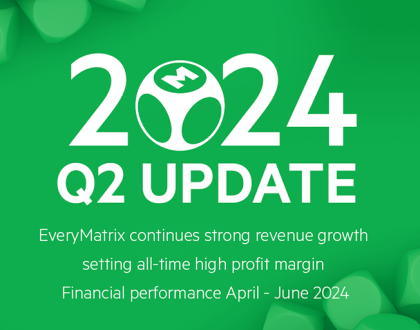Accounting for iGaming Success

There’s no denying that the iGaming industry is booming with opportunities for success, but with great rewards come great risks. In order to thrive in this fast-paced and highly competitive sector, a solid understanding of accounting principles is vital. From managing cash flow and monitoring expenses to analyzing revenue streams and adhering to regulatory compliance, proper accounting practices can be the difference between success and failure in the iGaming world. In this blog post, we will explore into the importance of financial management in iGaming and provide valuable insights on how to leverage accounting strategies to achieve sustainable growth and profitability in this dynamic industry.
The Financial Landscape of iGaming
Revenue Streams in iGaming
iGaming companies generate revenue through a variety of streams including player deposits, betting stakes, tournament fees, and affiliate partnerships. These streams contribute to the overall financial health of the company, making it vital to closely monitor and optimize each channel for maximum returns.
Budgeting and Financial Planning
Planning is crucial in iGaming to ensure sustainable growth and profitability. It involves creating detailed budgets that account for marketing expenses, software development costs, regulatory fees, and operational overheads. With a well-structured budget, iGaming companies can plan their investments wisely, allocate resources efficiently, and mitigate potential risks.
With the volatile nature of the iGaming industry, sound financial planning is crucial to navigate through uncertainties. Companies must stay agile in their budgeting approach, adapting to market trends and regulatory changes to maintain a competitive edge. By incorporating data-driven insights and forecasting techniques, iGaming businesses can make informed decisions that support long-term success.
Regulatory Compliance and Reporting
Understanding iGaming Regulations
You must understand that the iGaming industry is heavily regulated to ensure fairness, player protection, and the prevention of money laundering and fraud. Regulations vary by jurisdiction, and it is crucial to stay up to date with the ever-evolving legal landscape to avoid costly penalties and maintain a strong reputation in the industry.
Reporting Requirements and Transparency
Understanding reporting requirements and maintaining transparency is paramount in the iGaming sector. Compliance with strict reporting standards not only ensures adherence to regulatory obligations but also promotes trust among players and stakeholders. Transparent reporting practices help demonstrate a commitment to integrity and responsible gaming, enhancing your brand’s credibility and longevity in the industry.
Compliance with reporting requirements involves accurately documenting financial transactions, offering detailed reports on player activities, and implementing robust anti-money laundering measures. Failure to meet these obligations can result in severe consequences, including hefty fines, license revocation, and irreparable damage to your reputation. By prioritizing compliance and maintaining a high level of transparency, you can build a solid foundation for sustained success in the competitive iGaming market.
Maximizing Profits through Effective Accounting
Cost Control and Optimization
For iGaming companies, effective cost control and optimization are crucial for maximizing profits. With the industry’s competitive nature and ever-changing landscape, it’s crucial to closely monitor expenses and identify areas where costs can be reduced without compromising quality. By implementing rigorous cost control measures and continuously seeking ways to optimize processes, iGaming operators can achieve greater profitability and sustainability in the long run.
Strategic Financial Analysis
Strategic financial analysis plays a vital role in helping iGaming companies make informed business decisions that drive profitability and growth. By leveraging financial data and key performance indicators, operators can gain valuable insights into their financial health, identify trends, and uncover opportunities for improvement. Strategic financial analysis enables businesses to proactively address challenges, capitalize on strengths, and stay ahead of the competition.
Plus, strategic financial analysis empowers iGaming companies to anticipate potential risks, seize emerging opportunities, and optimize resource allocation for maximum returns. By incorporating advanced analytical tools and methodologies, operators can enhance their decision-making process and drive sustainable business success in an increasingly dynamic market environment.
Technological Advancements in iGaming Accounting
The Role of Software and Automation
After witnessing the evolution of iGaming, it is evident that technological advancements have significantly impacted accounting processes within the industry. Software and automation tools play a crucial role in streamlining financial procedures, from transaction recording to financial reporting. These tools not only enhance accuracy and efficiency but also allow for real-time monitoring of financial data.
Data Security and Fraud Prevention
To combat the increasing risk of cyber threats and financial crime, iGaming companies prioritize data security and fraud prevention measures in their accounting practices. Encryption technologies, secure payment gateways, and stringent access controls are put in place to safeguard sensitive financial information and prevent fraudulent activities.
Any breach in data security can have severe consequences for iGaming operators, including financial loss, reputational damage, and legal penalties. By implementing robust fraud prevention measures, companies can protect both their assets and the trust of their customers.
Another critical aspect of data security in iGaming accounting is the detection and prevention of fraudulent activities, such as money laundering and identity theft. Regular audits, strict compliance frameworks, and AI-powered monitoring tools are utilized to identify suspicious transactions and mitigate risks effectively.
Conclusion
Taking this into account, accounting plays a crucial role in the success of iGaming businesses. By utilizing proper financial management techniques, iGaming companies can effectively track their revenue streams, manage expenses, and make informed decisions to drive growth and profitability. Implementing sound accounting practices leads to increased transparency, financial stability, and regulatory compliance, ultimately fostering success in the competitive iGaming industry.
Recommended Posts

Financial Aspects of Doing Business in Malta
July 26, 2024

Effective iGaming Marketing Strategies
July 24, 2024

EveryMatrix Achieves Record Q2 2024 Growth
July 24, 2024



